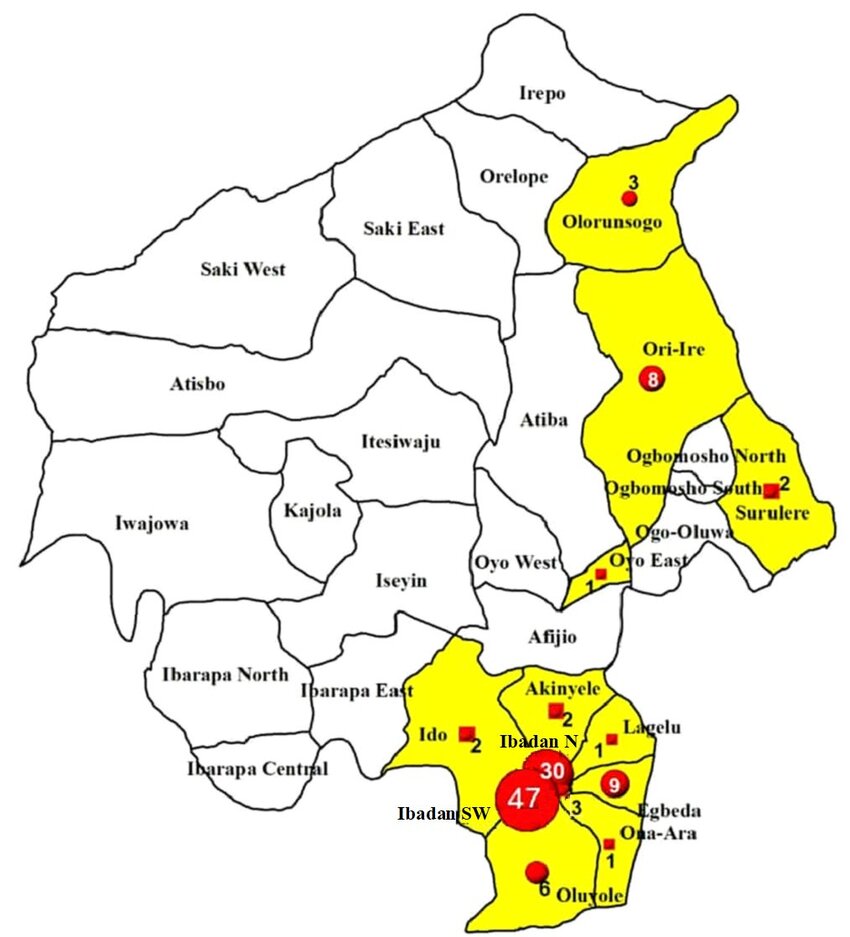Oke-Ogun, the agricultural heartbeat of Oyo State, comprises ten local governments out of thirty-three and occupies nearly 60% of the state’s landmass. From Saki to Kisi, Otu to Igboho, the region is rich in culture, natural resources, and votes. Yet, in all its contributions to the state food supply, revenue, and population it remains politically marginalized. Since the return to democracy in 1999, no son or daughter of Oke-Ogun has been elected governor of Oyo State. All governors in the Fourth Republic have emerged from Ibadan or Ogbomoso. This historical imbalance has led to increasing calls for justice, equity, and power shift.
But how should Oke-Ogun go about achieving this legitimate ambition? The answer is simple: diplomacy, not radicalism. The path to power in a diverse and complex state like Oyo is not through isolationist agitation or regional threats. Instead, it lies in strategic alliances, unity within the zone, and a strong, well-articulated negotiation strategy with other zones in the state. The goal is not to antagonize but to collaborate Oke-Ogun must play politics with wisdom, tact, and timing.
First, the region must put its house in order. The internal fragmentation among political elites, youth groups, and community leaders has weakened Oke-Ogun’s collective voice. In previous elections, the region often failed to rally behind a single gubernatorial candidate. Instead, various interests sponsored multiple aspirants, thus diluting the region’s strength and confusing potential allies. To move forward, Oke-Ogun leaders must convene a non-partisan summit to agree on one candidate someone competent, credible, and widely acceptable. This unity will project seriousness and readiness to lead.
Second, Oke-Ogun must court other regions diplomatically. In Oyo politics, no single zone can win governorship alone. Ibadan has the largest number of local governments 11 in total and a historically dominant voting bloc. However, recent elections have shown that no candidate can win without a coalition. For example, in 2019, Governor Seyi Makinde’s victory was due in large part to strategic alliances with key opposition elements. Similarly, Oke-Ogun must reach out to Oyo, Ibarapa, and even open-minded segments of Ibadan to build a rotational power argument grounded in fairness. A compelling case can be made that after decades of dominance by Ibadan and Ogbomoso, it is time to give Oke-Ogun a chance.
Beyond moral arguments, Oke-Ogun has leverage it has the numbers. The region controls roughly 30% of Oyo State’s registered voters. In tightly contested elections, that bloc can determine the winner. Rather than offer blind loyalty to parties or candidates, Oke-Ogun can use this electoral value as a bargaining chip. The message should be clear: “Support our candidate, and we will deliver; ignore us, and we reassess our alliances.” But this must be done respectfully and tactfully, without threats or blackmail. Diplomacy means knowing when to speak softly and when to act firmly.
A look at national politics shows that diplomatic coalition-building works. The North used it to rotate power during the Fourth Republic; the South-South leveraged it for Jonathan’s emergence; even smaller states have produced Senate Presidents and Governors through consensus-building. Radical protests may get headlines, but real power is negotiated, not shouted into being.
It is also important for Oke-Ogun to play the long game. If 2027 proves politically impossible due to current alignments, then 2031 should be the strategic focus. Political change requires planning, patience, and persistence. In the meantime, Oke-Ogun must invest in grooming quality leaders, strengthening media narratives around its contributions and marginalization, and aligning with technocrats, traditional rulers, and youth movements that can amplify the call for inclusion.
Let us be clear: the agitation for an Oke-Ogun governor is not about tribalism it is about justice and equity. It is about rewarding a region that feeds the state, hosts its border security challenges, and still maintains peaceful coexistence. The narrative must shift from “Give us power” to “Here’s what we bring to the table.” Oke-Ogun must sell itself as the bridge-builder state: not confrontational but constructive, not demanding but deserving.
As 2027 approaches, the clock is ticking. This is not the time for internal bickering or emotional rhetoric. It is time to organize, strategize, and mobilize. Oke-Ogun must show unity, clarity, and diplomacy. It must sit at the negotiation table with ideas, not aggression. Political power in Nigeria is rarely handed out it is won by those who understand the game, play smart, and build bridges.
The question is not whether Oke-Ogun deserves to lead Oyo State it certainly does. The real question is: will it choose the friendly handshake over the clenched fist? Will it be a builder of coalitions or a prisoner of bitterness?
History will remember the choice.



